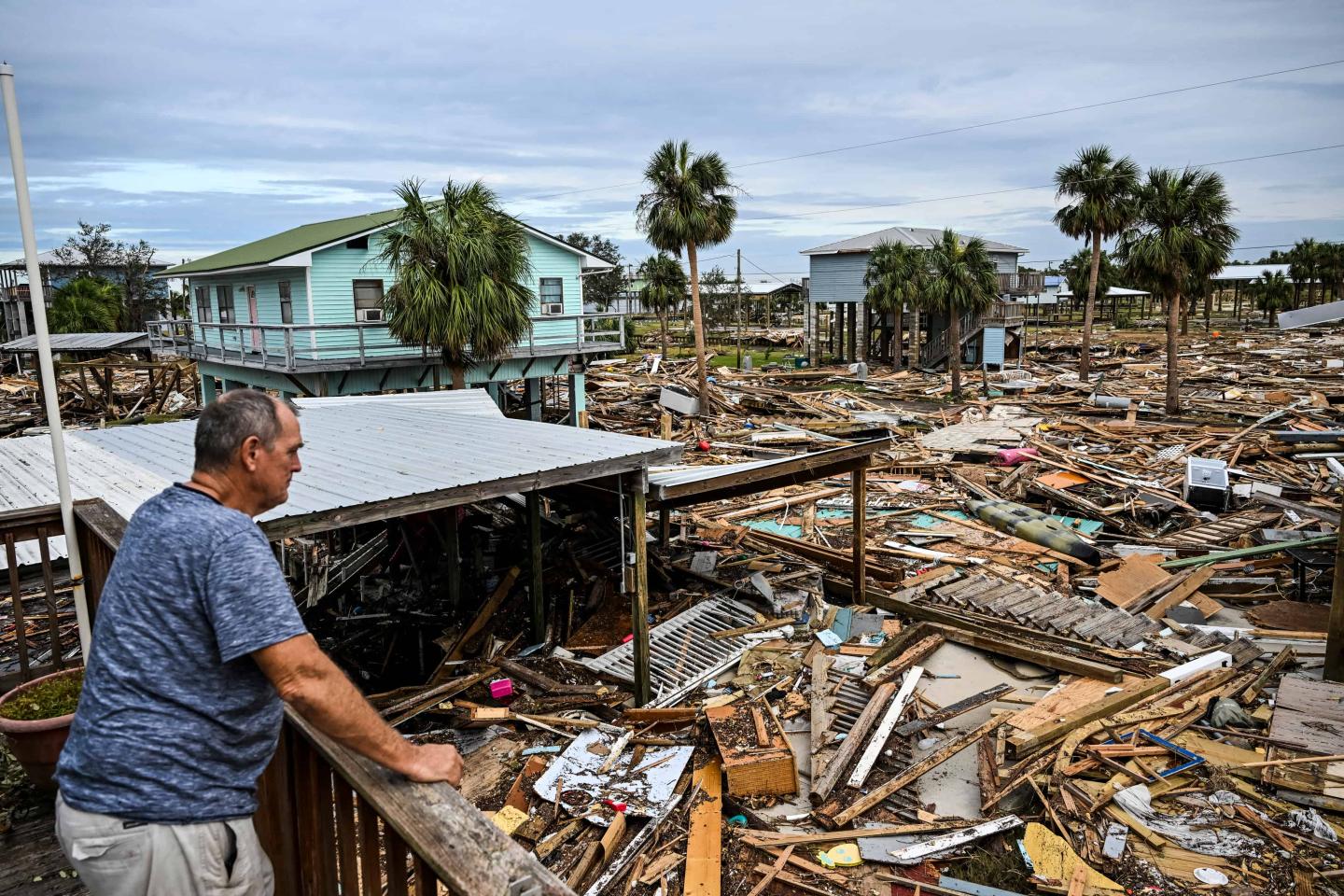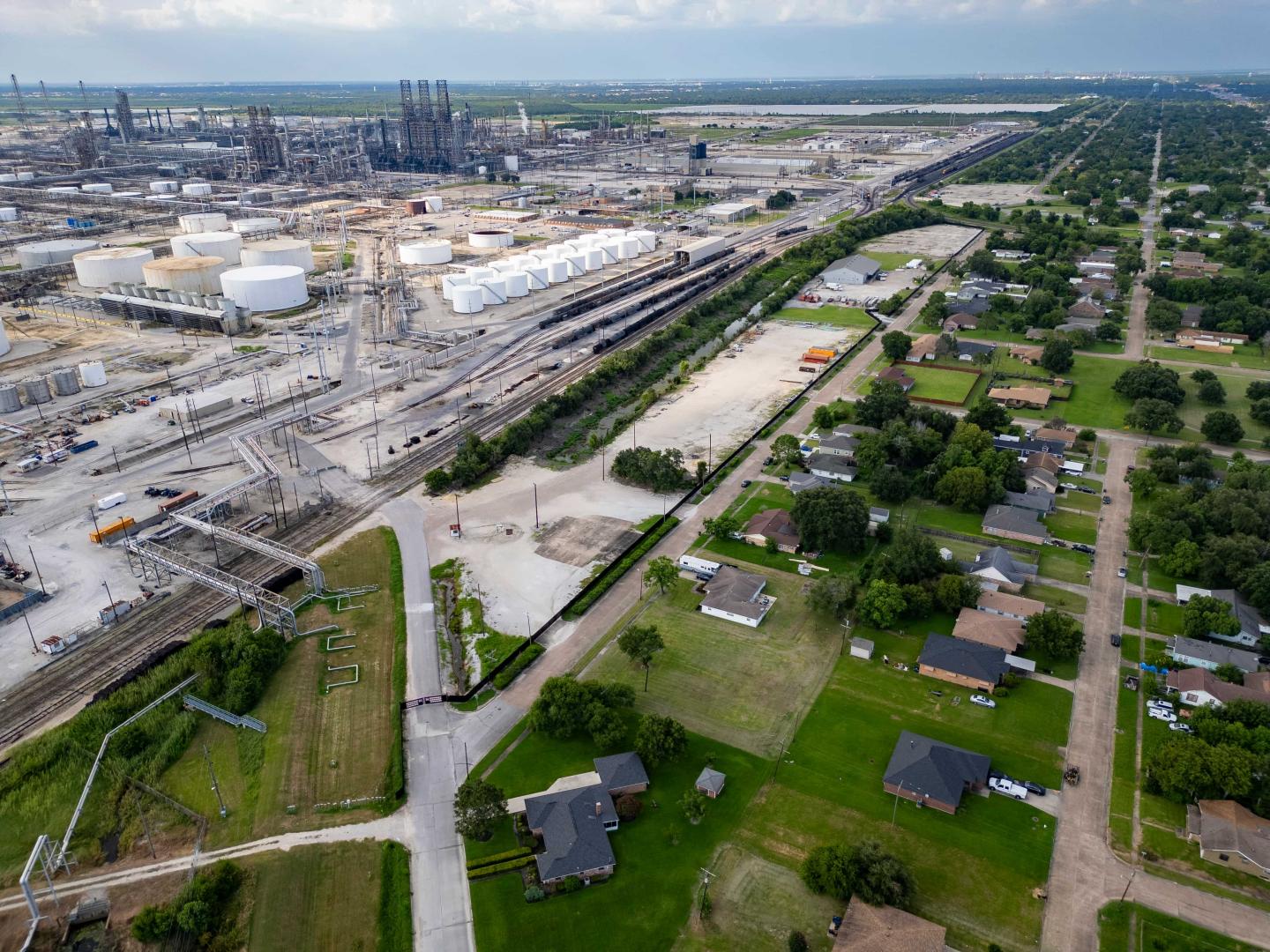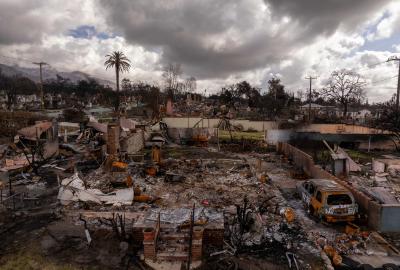How the Trump administration is making hurricane season more dangerous
More pollution and less protection is a recipe for disaster, say EDF’s coastal expert Will McDow and healthy communities head Sarah Vogel.
It's hurricane season, and residents of the Gulf and Atlantic coasts know the drill: Stock up on bottled water, diapers, batteries and other emergency supplies. Documents like birth certificates and deeds need to be stored in waterproof containers.

Forecasters' predictions that this hurricane season would bring more named storms than usual are, unsurprisingly, on track. People know storms are getting worse, and decades of research confirm why: Greenhouse gases — many from the burning of fossil fuels — are overheating the planet, and that’s fueling more powerful, more extreme, more destructive weather. Hurricane Harvey, in 2017, was the costliest disaster since Katrina. Its record rainfall — five feet in four days — was as much as 38% more intense because of climate change than it would have been on its own. Since then, we’ve had eight of the hottest summers ever recorded.
Anyone who has mucked out a flooded house, or volunteered to distribute supplies or piloted a canoe down their street with a bag of groceries for a neighbor knows that these intense storms are no hoax.
What is different this hurricane season is that President Donald Trump’s administration is attempting to deny reality and is systematically, cruelly and foolishly welcoming more harmful pollution into our communities and taking away information and resources we all count on to protect ourselves.
More pollution during hurricanes
In March 2025, the administration offered a glide path to obtaining passes for at least 500 industrial facilities around the country, allowing them to emit highly toxic chemicals with impunity for up to two years.

Many of those facilities are in the hurricane-prone Gulf Coast. That means more harmful pollution could be in the air when the next hurricane hits — and extreme weather tends to cause malfunctions, shutdowns and other “upsets” at these facilities as it is, letting out even more pollution at the worst possible time.
During Hurricane Beryl, according to the Texas Air Emission Event Report Database, 14 reported upsets added almost 500,000 pounds of extra pollution into the air while the power was out and HVAC and filter systems in homes, schools, and offices were down.
Less protection and higher costs
In addition to welcoming more pollution and vowing to weaken and repeal as many as 31 environmental laws, the Trump administration has acted to hide the information we all rely on to understand the problems we face.
For the first time in a generation, the administration failed to provide an inventory of the country’s climate-altering pollution from last year. Under its watch, the National Weather Service has lost more than 600 meteorologists, hydrologists, technicians and others who study and track storms and provide emergency weather alerts.
Meanwhile, the federal agency that runs the NWS has been ordered to stop keeping track of billion-dollar disasters. Last year’s tally reached 27, including hurricanes Helene and Milton, the New Mexico wildfires and the Midwest storms that spawned 79 tornadoes in a single, savage week in July.
Environmental news that matters, straight to your inbox
Soaring insurance rates
Disasters like these make insurance more expensive. Nationwide, homeowners' insurance premiums increased 33% from 2020 to 2023. Last year, rates in Texas went up by nearly 19%, further driving up the already high costs of housing.
What could prove even more costly is the administration’s decision to end a program that was helping communities take protective measures ahead of time, such as elevating homes, strengthening utility poles, protecting drinking water and building schools and hospitals out of places that routinely flood. These pre-disaster measures save $13 for every $1 invested.
Without protections in place, future disasters could end up costing even more. Yet the administration is also threatening FEMA, the one federal agency with the resources to help after the very worst happens.
The Trump administration’s willful disregard of pollution and continued denial of climate change won’t stop hurricanes. Far too many people on the Gulf and Atlantic coasts will be put at an even greater risk and burdened with higher costs than we already face.
What most families want, wherever they call home, are sensible limits to pollution; access to affordable energy; and the ability to enjoy resilient, thriving communities where our children can play outside and grow up healthy. This administration is delivering only more debt, more pollution and more danger.
Will McDow is associate vice president for EDF's Climate Resilient Coasts and Watersheds initiatives. Sarah Vogel is the senior vice president for healthy communities at Environmental Defense Fund. A version of this op-ed was originally published in The Houston Chronicle.

